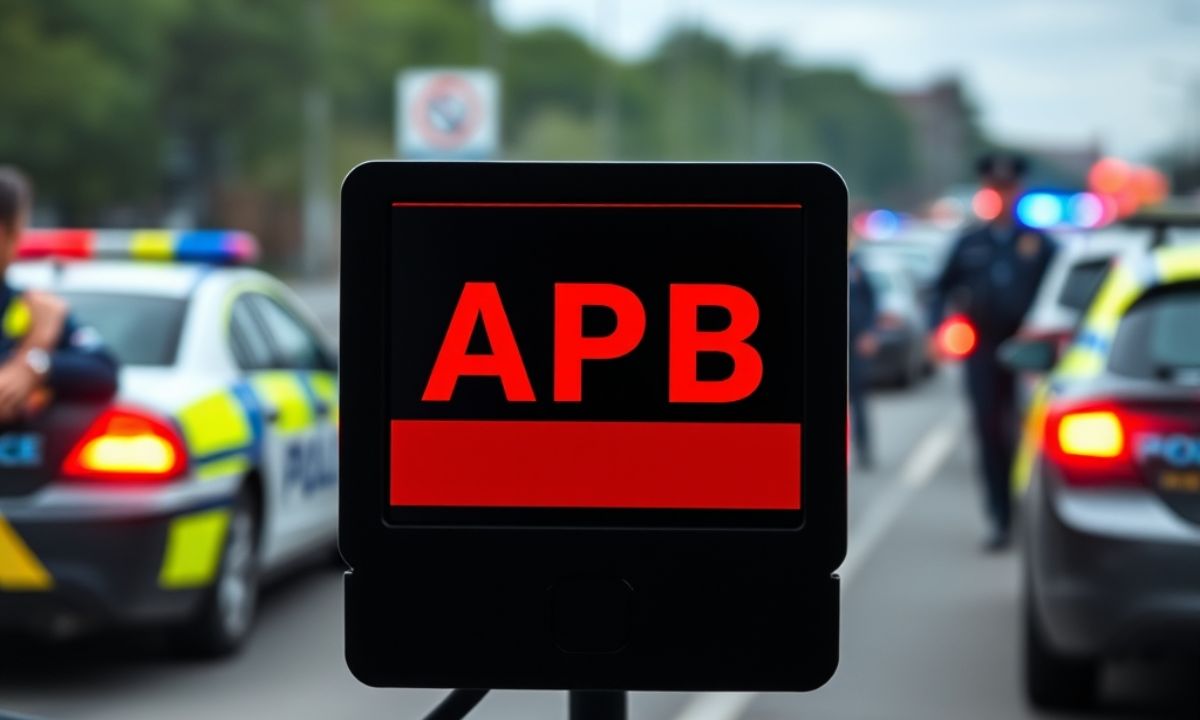When you hear the phrase APB, it probably brings to mind police dramas or breaking news reports. The term carries a sense of urgency, but many people don’t actually know what it stands for or how it’s used in real life.
APB stands for All-Points Bulletin, and while it’s most commonly linked to law enforcement, it also pops up in everyday conversations and even slang. From searching for suspects to joking about a lost remote, this short acronym has more depth than you might expect.
In this guide, we’ll break down the true APB meaning, explore its role in policing, clear up common misconceptions, and even look at how it’s used casually. By the end, you’ll understand why this simple three-letter term carries such weight in different contexts.
What Does APB Mean?
APB stands for All-Points Bulletin. It’s a broadcast alert used mainly by law enforcement to share urgent information.
Think of it like a group text message—but instead of going to your friends, it goes out to all police units, departments, or agencies.
The term became popular with the rise of police radios, where officers needed a quick way to spread vital info. For example, if a suspect fled a crime scene, an APB would be issued so every officer in the area could look out for that person.
What Does an APB Mean in Police?
In the police world, an APB is one of the fastest tools for communication. It’s issued when law enforcement wants all officers—sometimes across cities or states—to be on the lookout for a suspect, a missing person, or even a stolen vehicle.
For example, if there’s an armed robbery and the suspect escapes in a red SUV, a dispatcher might put out an APB describing the suspect and vehicle. Every officer in the network then has that info instantly.
This helps cover more ground quickly and increases the chance of finding the person or item being searched for.
What Does APB Mean in Slang?
Outside of police work, APB has taken on a more playful meaning in slang.
People use it jokingly to mean “I’m searching for something.”
Example: “I’m putting out an APB for my missing keys.”
It’s basically borrowing the seriousness of the police term and making it casual or funny in everyday conversation.
Is an APB the Same as a Warrant?
No—an APB is not the same as a warrant.
- An APB is just an alert or broadcast, a way of saying, “Hey, keep an eye out for this person.”
- A warrant is a legal document issued by a judge that gives police the authority to arrest someone or search property.
They sometimes work together, though. For instance, if someone has a warrant out for their arrest, an APB may be issued to help locate them.
Is APB a Missing Person?
Not exactly. APB is not only for missing people. It can cover suspects, stolen vehicles, or urgent law enforcement information.
For missing people, police often issue specific alerts like Amber Alerts (for children) or Silver Alerts (for elderly individuals). But an APB may also include a missing person if law enforcement needs widespread help finding them.
Who Puts Out an APB?
Usually, an APB comes from law enforcement agencies. This could be:
- Local police departments
- Sheriff’s offices
- Federal authorities like the FBI
The decision to put one out often comes from a dispatcher or commanding officer when quick communication is needed.
What is the Purpose of an APB?
The main goal of an APB is speed and coordination. Instead of relying on word of mouth or slower methods, an APB spreads urgent info instantly to everyone in the network.
It ensures multiple officers, sometimes across different agencies, are working together at the same time. This increases efficiency and reduces response time.
Who Receives an APB Alert?
Traditionally, APBs were sent only to police officers and law enforcement units. But with modern media and technology, the circle has widened.
- Officers and dispatchers get it first.
- In high-risk cases, news outlets and the public may also hear the APB through press releases, TV, or online bulletins.
This wider reach helps involve communities in spotting suspects or missing persons.
What Does AOB Stand For?
It’s easy to confuse APB with AOB, but they’re not the same.
- APB = All-Points Bulletin (police and alerts).
- AOB = Any Other Business (used in business meetings to cover extra topics).
So if you hear AOB in a corporate meeting, don’t mistake it for a police broadcast.
Other Common Acronyms Related to APB
Law enforcement uses a lot of acronyms similar to APB. Some of the most common include:
- BOLO – Be On the Look Out. Very similar to APB but often used in written alerts.
- Amber Alert – A special system for abducted children.
- Wanted Poster – Old-school version of an APB, but in print.
These acronyms show how law enforcement has evolved ways to spread urgent information over time.
Final Thoughts
APB meaning is simple to understand. It stands for All-Points Bulletin. Police use it when they need to share urgent news fast. In slang, people use APB in a lighter way, often as a joke.
The APB meaning shows how one short word can be useful in many ways. In law, it helps keep people safe. In daily life, it adds fun to conversations. Knowing the APB meaning makes the term clear for everyone.

Welcome to Bloomnis.com! I am the admin, here to bring you the best jokes and laughter. My goal is to make your day brighter with funny content. Enjoy jokes, puns, and humor anytime. Keep smiling and have fun with us. Laughter is the best medicine!
















